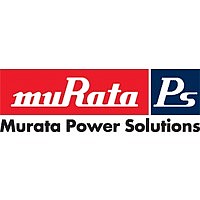GCM1885G1H100JA16D Murata Electronics North America, GCM1885G1H100JA16D Datasheet - Page 62

GCM1885G1H100JA16D
Manufacturer Part Number
GCM1885G1H100JA16D
Description
CAP CER 10PF 50V X8G SMD
Manufacturer
Murata Electronics North America
Series
GCMr
Datasheet
1.GCM0335C1ER30CD03D.pdf
(66 pages)
Specifications of GCM1885G1H100JA16D
Voltage - Rated
50V
Lead Style
*
Capacitance
10pF
Tolerance
±5%
Temperature Coefficient
X8G
Mounting Type
*
Operating Temperature
-55°C ~ 150°C
Applications
Automotive
Ratings
AEC-Q200
Package / Case
*
Size / Dimension
*
Thickness
*
Lead Spacing
*
Lead Free Status / RoHS Status
Lead free / RoHS Compliant
Features
-
3
!Note
• This PDF catalog is downloaded from the website of Murata Manufacturing co., ltd. Therefore, it’s specifications are subject to change or our products in it may be discontinued without advance notice. Please check with our
• This PDF catalog has only typical specifications because there is no space for detailed specifications. Therefore, please approve our product specifications or transact the approval sheet for product specifications before ordering.
sales representatives or product engineers before ordering.
!Note
6. Correction with a Soldering Iron
Table 3
7. Washing
FAILURE TO FOLLOW THE ABOVE CAUTIONS MAY
RESULT, WORST CASE, IN A SHORT CIRCUIT AND
FUMING WHEN THE PRODUCT IS USED.
60
!Caution
G--21/31
G--32/43/55
*Applicable for both Pb-Sn and Lead Free Solder.
Part Number
Pb-Sn Solder: Sn-37Pb
Lead Free Solder: Sn-3.0Ag-0.5Cu
Optimum Solder Amount when re-working Using a
When sudden heat is applied to the components by use
of a soldering iron, the mechanical strength of the
components will go down because the extreme
temperature change causes deformations inside the
components.
In order to prevent mechanical damage to the
components, preheating is required for both the
components and the PCB board.
Preheating conditions, (The "Temperature of the
Soldering Iron tip", "Preheating Temperature",
"Temperature Differential" between iron tip and the
Soldering Iron
In case of larger sizes than Gpp21, the top of the solder
fillet should be lower than 2/3's of the thickness of the
component.
If the solder amount is excessive, the risk of cracking is
higher during board bending or under any other stressful
conditions.
A Soldering iron ø3mm or smaller should be used.
It is also necessary to keep the soldering iron from
touching the components during the re-work.
Solder wire with ø0.5mm or smaller is required for
soldering.
Excessive output of ultrasonic oscillation during cleaning
causes PCBs to resonate, resulting in cracked chips or
broken solder. Take note not to vibrate PCBs.
Continued from the preceding page.
• Please read rating and !CAUTION (for storage, operating, rating, soldering, mounting and handling) in this catalog to prevent smoking and/or burning, etc.
• This catalog has only typical specifications because there is no space for detailed specifications. Therefore, please approve our product specifications or transact the approval sheet for product specifications before ordering.
Temperature
of Soldering
350 C max.
280 C max.
Iron tip
Temperature
150 C min.
150 C min.
Preheating
Temperature
Differential
TV190D
TV130D
( T)
Atmosphere
air
air
components and the PCB), should be within the
conditions of table 3.
It is required to keep the temperature differential between
the soldering Iron and the components surface ( T) as
small as possible.
After soldering, do not allow the component/PCB to cool
down rapidly.
The operating time for the re-working should be as short
as possible. When re-working time is too long, it may
cause solder leaching, and that will cause a reduction of
the adhesive strength of the terminations.
Solder Amount
in section
C03E.pdf
10.5.20

















